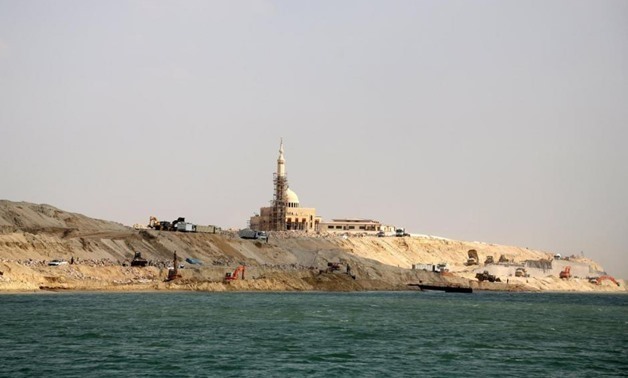
Tractors work on Egypt's New Suez Canal project at the Suez Canal zone, Egypt, June 13, 2015 - REUTERS/Asmaa Waguih
CAIRO - 7 February 2018: Egypt and Russia have been negotiating $7 billion worth of Russian investments in the Russian Industrial Zone (RIZ) project in the East Port Said region since February 2015, with the final agreement expected to be signed in March.
RIZ would be established on an area of 5.25 million square meters and will be built over three phases, according to a statement issued by the Suez Canal Economic Zone.
Russian Deputy Minister of Industry and Trade Georgy Kalamanov said in July that the RIZ will act as a platform for Russian products to enter the Egyptian and African markets.
“I see it as a hub. I believe it is a first stage in shaping basic platforms for spreading Russian goods in African countries, “ Kalamanov announced.
Development works of the first phase, involving 1 million square meters, will start this year and will be carried out by a Russian developer who will also work on attracting Russian investors and companies throughout 2018 and 2019. This phase will create 7,300 jobs in the construction field.
The second phase will develop 1.6 million square meters and will be finished by 2022, creating 10,000 jobs, while the third phase will develop 2.65 million square meters and generate 17,000 jobs.
The three phases are expected to be finished by 2031, when Russian companies will start operations, providing some 35,000 direct and indirect jobs, the statement said.
Industrial projects and buildings will be built over a space of 2.8 million square meters, while the rest of the land will be used to build residential units as well as commercial and entrainment facilities for the zone’s staff.
The Egyptian and Russian sides have agreed to establish a company under the name of Moscow Economic Zone to be responsible of the zone’s operations and construction works.
The two sides have further agreed that the Egyptian and Russian governments will supervise the project, which is funded by the Russian Direct Investment Fund (RDIF) and a number of Egyptian banks.
Manufacturing air conditioners, motors, construction equipment, glass, ceramics, electronics, medical supplies and plastic are among the industries targeted by the RIZ.
Chairman of the Suez Canal Authority (SCA) Mohab Mamish said in the statement that the RIZ would help cover East Port Said’s needs for industries as well as the needs of the domestic market.
He added that the zone would serve as a gateway for Russian companies to European and African countries.
Mamish added that the land granted for the RIZ is on a usufruct basis and the condition for establishing projects and industrial complexes inside the Suez Canal Economic Zone is that 90% of the workforce is Egyptian. This would help the economic zone realize its target of creating 1 million jobs, according to the sustainable development strategy “Egypt Vision 2030,” Mamish said.
In October, Mamish announced that negotiations between Egypt and Russia on the industrial zone have been successful. Trade between Egypt and Russia increased to
about $2.5 billion in the first seven months of 2017, from about $2.2 billion in the same period of 2016.
Egypt’s exports to Russia reached $387.9 million in the first seven months of 2017, compared with $304.6 million a year earlier, a 27.3% increase.
Total Russian investments in the Egyptian market are valued at about $62.8 million across 417 projects in various fields, according to the Trade Ministry.
The project is part of ongoing efforts to encourage foreign and domestic investments in the Suez Canal Economic Zone, which is set to include an international logistics hub and areas for light, medium and heavy industry, as well as commercial and residential
developments.
Stretching over 461 square kilometers, the zone extends through the three Suez
Canal governorates of Suez, Port Said and Ismailia, and will include six maritime ports, to be completed by 2045.


Comments
Leave a Comment